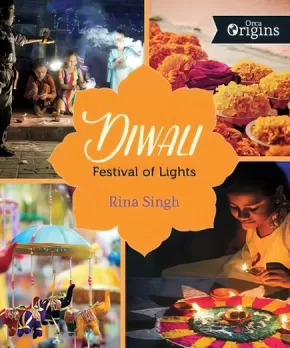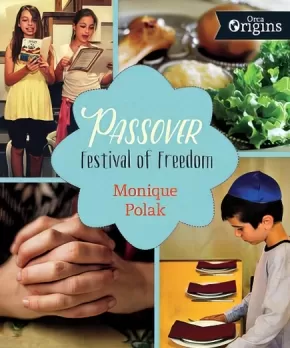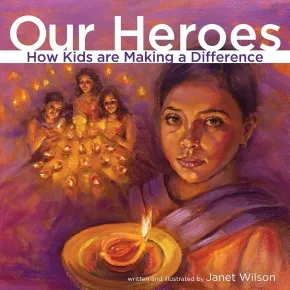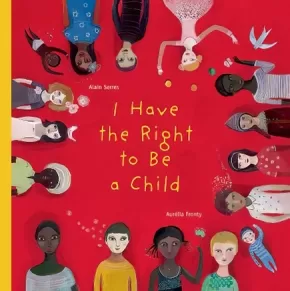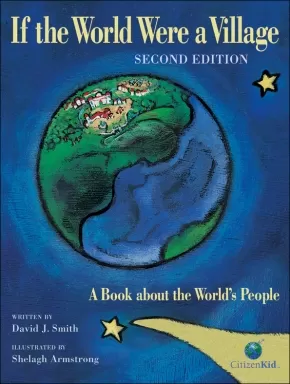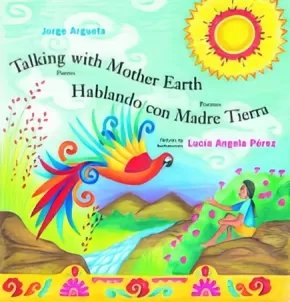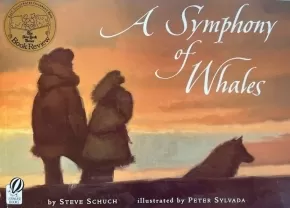Multicultural Books
Synopsis:
During Diwali, Hindus, Sikhs and Jains celebrate the legends and stories that describe the triumph of good over evil and justice over oppression. Critically acclaimed author Rina Singh explores her Indian roots as she tells the Diwali stories, which remind us that eventually light will prevail over darkness.
Enriched by personal stories and spiced with festive recipes, including two by acclaimed chef, Vikram Vij, Diwali: Festival of Lights brings to life the holiday’s traditions, food and rituals and takes you on a journey to see how this festival is celebrated around the world!
Diwali is the second book in the Orca Origins series, which examines how ancient traditions are kept alive in the modern world.
Reviews
"This sophisticated volume incorporates information about the major Indian religions; Hindu, Sikh, and Jain Diwali traditions; and Indian immigration to the U.S., Canada, and the Caribbean...An exceptionally valuable resource." — Kirkus Reviews
"A standout volume...an excellent introduction to Diwali and Indian culture, highly recommended for all geography collections." — School Library Journal
"Provides a remarkably comprehensive look at the origins of the Hindu festival of lights...The intimate tone and vibrant photographs make this book an enjoyable and informative read from start to finish. Young readers will love the photographs, and older ones will appreciate the joy and concept of a celebration of light." — Booklist
"Written in a very readable text accompanied by colourful historical and contemporary captioned photographs...This book would be a great compliment to a study of religious customs and multiculturalism...I would highly recommend it for inclusion in school and public libraries." — Resource Links
Educator & Series Information
This book is part of the Orca Origins series that explores cultural celebrations throughout the world.
Recommended for ages 9-12.
Additional Information
96 pages | 7.50" x 9.00"
Synopsis:
During Passover, Jews are reminded of how, more than three thousand years ago, their ancestors emerged from slavery to become free men and women. Bestselling author Monique Polak explores her own Jewish roots as she tells the Passover story, which reminds us that the freedom to be who we are and practice our religion, whatever it may be, is a great gift. It also teaches us that if we summon our courage and look out for each other, we can endure and overcome the most challenging circumstances. Enlivened by personal stories, Passover reminds us that we can all endure and overcome the most challenging circumstances.
Passover is the first in a series of books called Orca Origins that will examine ancient traditions kept alive in the modern world.
Reviews
"While this title in the Orca Origins series explains the holiday of Passover, it also goes further. In the introduction, Polak remembers her associations with the holiday while growing up in Montreal, mostly through friends’ seders...The sections in which the Holocaust survivors remember is both chilling and moving...Kids’ holiday rituals and personal stories make for an interesting mix. Illustrated with many color photos, this unique take on an ancient holiday should resonate with readers."— Booklist
"An overview of the holiday of Passover is elaborated with personal narratives, the story's connection to the Holocaust, and various Seder customs practiced in several countries around the world...A plethora of photographs, informational sidebars, drawings, and recipes break up the substantial yet enlightening text. Good supplementary material to increase the holiday's meaning and currency for older children."— Kirkus Reviews
"Each chapter is detailed with an abundance of information...Personal stories of Holocaust survivors, Ben and Liselotte, add to the appeal and authenticity of this title...A helpful glossary, and a list of references and resources are also included. Passover is the first in a series of books in the 'Orca Origins' series which will examine 'ancient traditions kept alive in the modern world.'"— CM Magazine
"The author does a thorough job of describing the origins of Passover, the intricacies of the seder, and the importance of this event to Jews around the world. She makes it all accessible to middle-grade readers, regardless of their ethnicity, by including the stories of specific individuals (including a couple of elderly Montrealers who survived the Holocaust), focusing on the participation of children in the seder, and including some simple recipes. The result is a lively read, illustrated with many photos."— The Montreal Gazette
"With her convivial, chatty writing style, the material is easily absorbed, and the richness of the culture and festival shine through. Facts are augmented and enriched by the narratives of many participants...Undoubtedly, the book will encourage much discussion and sharing of religious traditions and will be a welcome and highly readable addition to various library collections."— Canadian Children's Booknews
Educator & Series Information
This book is part of the Orca Origins series that explores cultural celebrations throughout the world.
Recommended for ages 9 to 12.
Additional Information
72 pages | 7.50" x 9.00"
Synopsis:
A girl who founded a charity for girls’ education, a boy who raised money with every baseball he could hit. True stories of children who opened up their hearts and minds to the unfairness of the world and decided to try and make a difference, because everyone deserves to be happy.
Andrew Adansi-Bonnah from Ghana raised thousands of dollars for refugee children in Somalia after seeing their terrible situation on the news. Jonathan Lee from South Korea was given special permission to travel to North Korea to talk about the environment. Mimi Ausland from the USA, nicknamed “Dr. Doolittle,” started a website to collect donations for shelter animals. All of them are everyday heroes, and you can be one too.
Educator & Series Information
This book is part of the Kids Are Making a Difference Series.
Recommended for ages 7 to 12.
Additional Information
32 pages | 8.50" x 8.50"
Synopsis:
With a very simple text accompanied by rich, vibrant illustrations a young narrator describes what it means to be a child with rights -- from the right to food, water and shelter, to the right to go to school, to be free from violence, to breathe clean air, and more. The book emphasizes that these rights belong to every child on the planet, whether they are "black or white, small or big, rich or poor, born here or somewhere else." It also makes evident that knowing and talking about these rights are the first steps toward making sure that they are respected.
A brief afterword explains that the rights outlined in the book come from the Convention on the Rights of the Child, which was adopted by the UN General Assembly in 1989. The treaty sets out the basic human rights that belong to children all over the world, recognizing that children need special protection since they are more vulnerable than adults. It has been ratified by 193 states, with the exception of Somalia, the United States and the new country of South Sudan. Once a state has ratified the document, they are legally bound to comply with it and to report on their efforts to do so. As a result, some progress has been made, not only in awareness of children's rights, but also in their implementation. But there are still many countries, wealthy and poor, where children's basic needs are not being met.
Educator & Series Information
Recommended for ages 4 to 7.
This book is part of the I Have the Right series.
Correlates to the Common Core State Standards in English Language Arts:
CCSS.ELA-LITERACY.RI.K.2
With prompting and support, identify the main topic and retell key details of a text.
Additional Information
48 pages | 9.63" x 9.63" | Hardcover
Synopsis:
The 2nd Edition of the best-selling book which has sold over 400 000 copies in 17 languages – updated with new content and insights about the world's people.
First published to wide acclaim in 2002, this eye-opening book has since become a classic, promoting "world-mindedness" by imagining the world's population – all 6.8 billion of us – as a village of just 100 people.
Now, If the World Were a Village has been newly revised with updated statistics, several new activities and completely new material on food security, energy and health. By exploring the lives of the 100 villagers, children will discover that life in other nations is often very different from their own.
Educator & Series Information
If the World Were a Village is part of CitizenKid: A collection of books that inform children about the world and inspire them to be better global citizens.
Ages: 8 to 12
Reading Levels:
Fountas & Pinnell: R
Grade Level: 4
Accelerated Reader: MG 5
Curriculum Connections: Social Studies - Cultures, Local & Global Community, human geography, multiculturalism, global awareness
Additional Information
32 pages | 9.37" x 12.50"
Synopsis:
Raw, honest and powerful, these moving bilingual poems by noted Salvadoran poet Jorge Argueta explore a young native boy's connection to Mother Earth and how he is healed from the terrible wounds of racism he has endured. Tetl has learned from his grandmother about the spirituality of his ancestors, about how they viewed the earth as alive with sacred meaning. This helps him move from doubt and fear, created by the taunts of other children, to self-acceptance and a discovery of his love for nature.
Mountains, wind, corn and stones all speak to Tetl, almost seeming to vibrate with life. He feels deep roots in them and, through them, he learns to speak and sing. They reveal his Nahuatl self and he realizes that he is special, beautiful and sacred.
These gripping poems have something to teach us all, perhaps especially those who have been either intentionally or casually cruel or racist, as well as those who have been the victims of racism.
Crudos, honestos e impactantes, estos conmovedores poemas bilingües por el aclamado salvadoreño Jorge Argueta exploran la relación de un joven nativo con la Madre Tierra y de como fue curado de las terribles heridas causadas por el racismo que ha tenido que aguantar. Tetl ha aprendido de su abuela sobre la espiritualidad de sus ancestros, sobre como ellos veían la tierra como un ser vivo con un sentido sagrado. Esto lo ayuda a pasar de la duda y el miedo, creado por las burlas de los otros niños, a la aceptación de sí mismo y al descubrimiento de su amor por la naturaleza.
La montañas, el viento, el maíz y las piedras le hablan a Tetl, parece casi que vibran de vida. El siente profundas raíces en ellos, a través de ellos, y aprende a hablar y cantar. Ellos le revelan su parte Náhuatl y él se da cuenta de que es especial, bello y sagrado.
Estos poemas apasionantes tienen algo que enseñarnos a todos, quizás especialmente a aquellos que intencionalmente o sin quererlo han sido crueles o racistas, como también a aquellos que a su vez han sido víctimas del racismo.
Additional Information
36 pages | 8.94" x 9.56"
Synopsis:
Once, humans and whales made music together . . . but that was long ago.
Glashka is the only one in her village who can hear the voice of Narna, the whale. That gift leads her to great responsibility one day, when she discovers thousands of whales trapped in an inlet. The narrow route to the sea is rapidly icing over, and every day ice covers more of the open water the whales need to breathe. There seems to be no way out. . . . This story, based on an actual event, tells of a dramatic rescue--a tale of bravery and faith and the power of music.
Reviews
"During the winter of 1984-1985, nearly 3,000 beluga whales were trapped in the Senyavina Strait of Siberia--and saved by the bravery and persistence of villagers and the crew of a passing icebreaker. Schuch, a musician, turns this episode into a picture book by casting a child as heroine. Glashka has always been able to hear music in her head, and the ""old ones"" of the village tell her she hears ""the voice of Narna, the whale. Long has she been a friend to our people."" Glashka uses this talent to find the trapped whales and then to discover the secret of saving them. The plotting and diction are a little trumped-up, but on balance the text is tender and moving, and debut illustrator Sylvada's heavy oil paintings readily transport readers to the bitter winter days of Siberia. Emphasizing the changing light and the textures of characters' clothing instead of individual expressions, the illustrations cast a mood that reinforces the sober issues of the text." - Publisher's Weekly
Educator Information
Recommended Ages: 4-7.
Additional Information
32 pages | 11.00" x 8.00"

